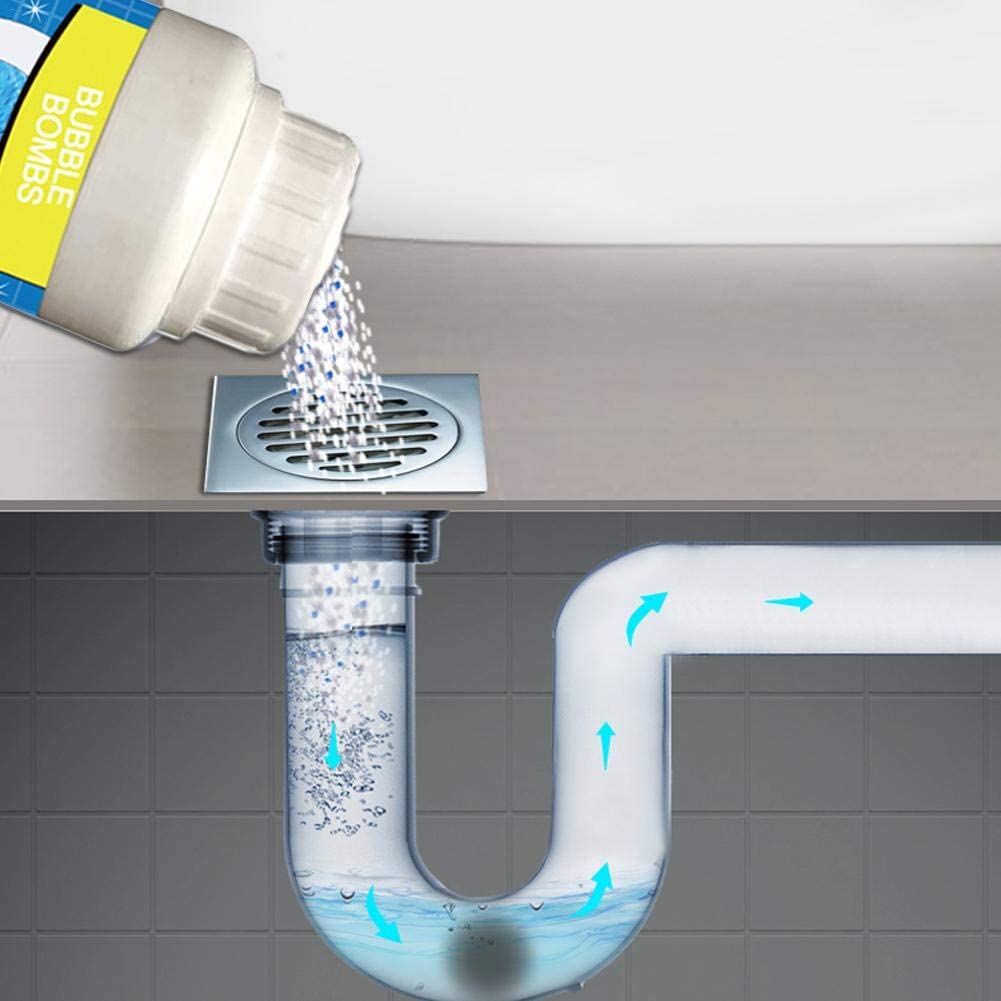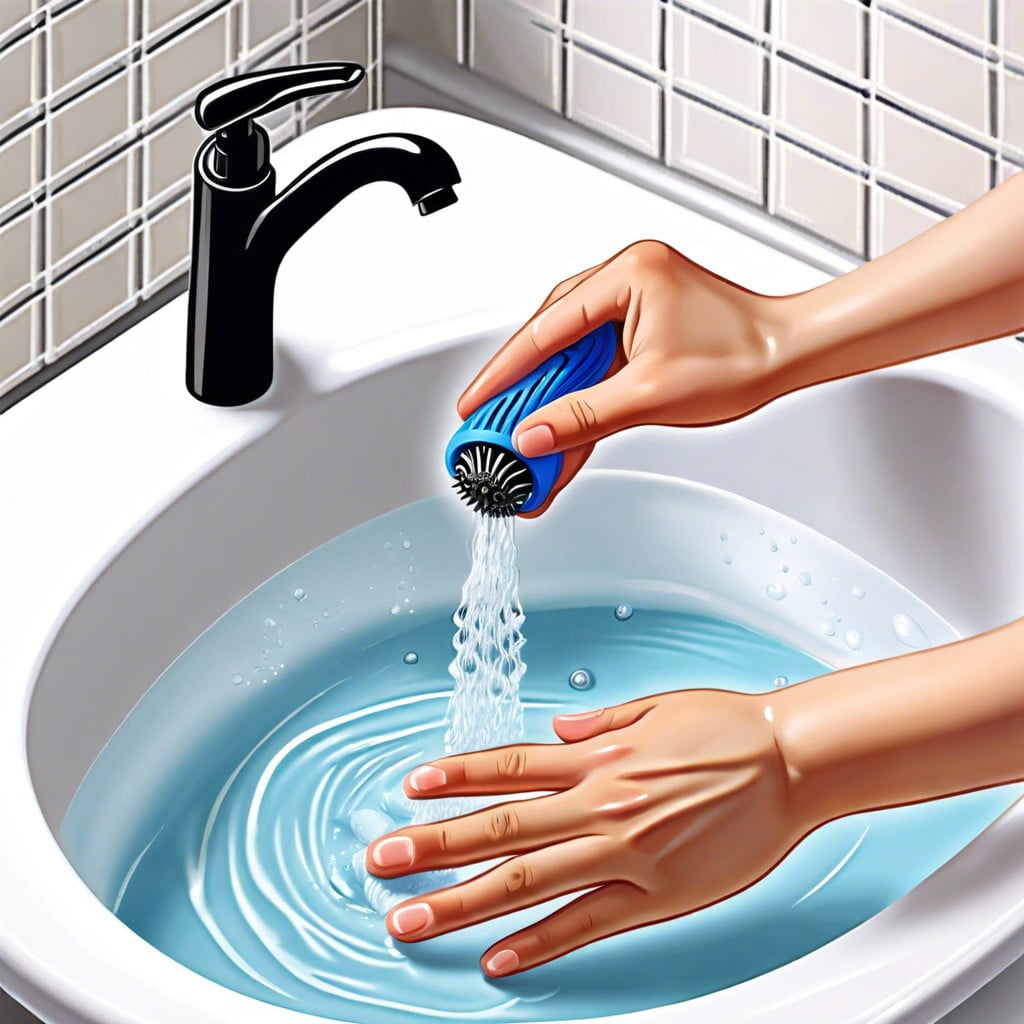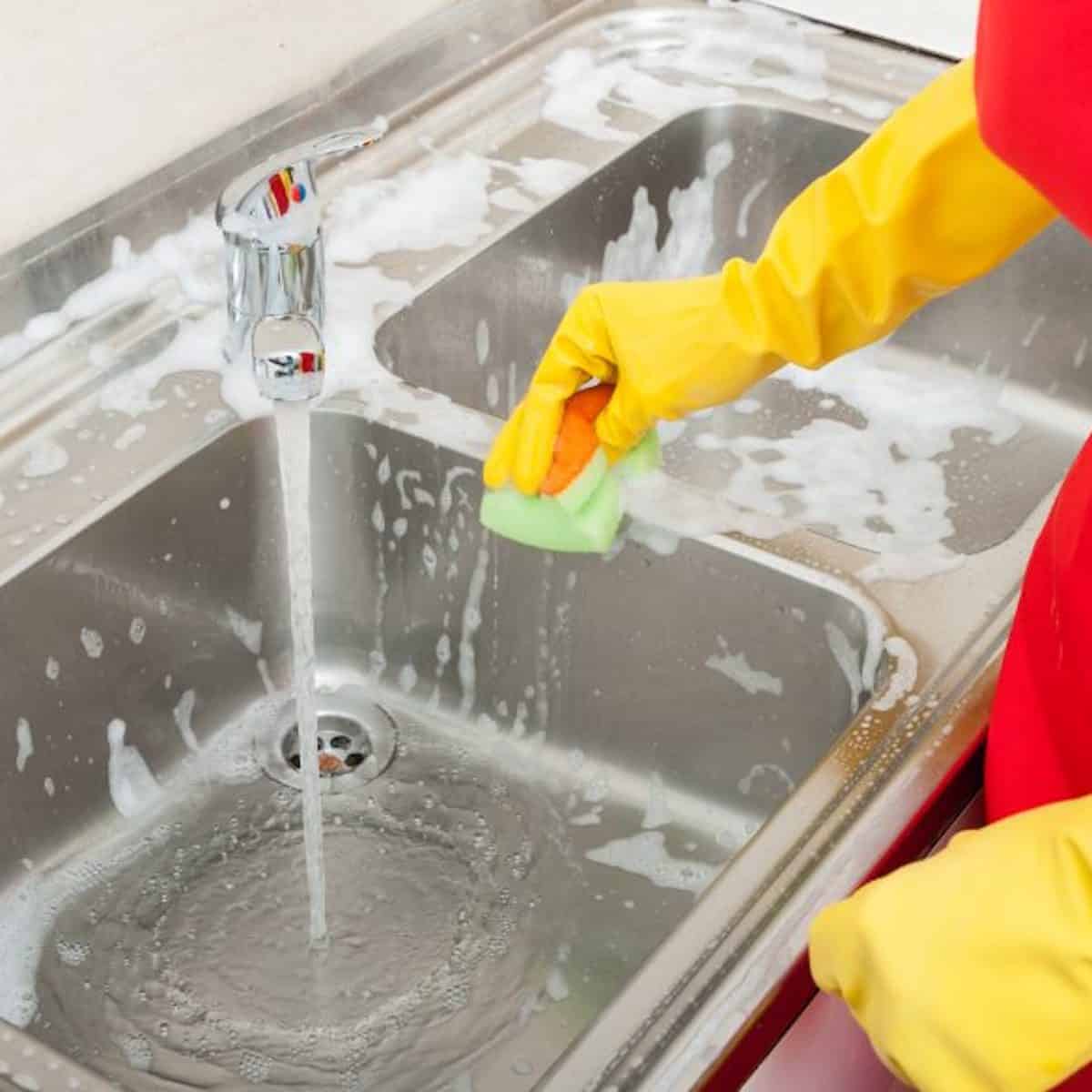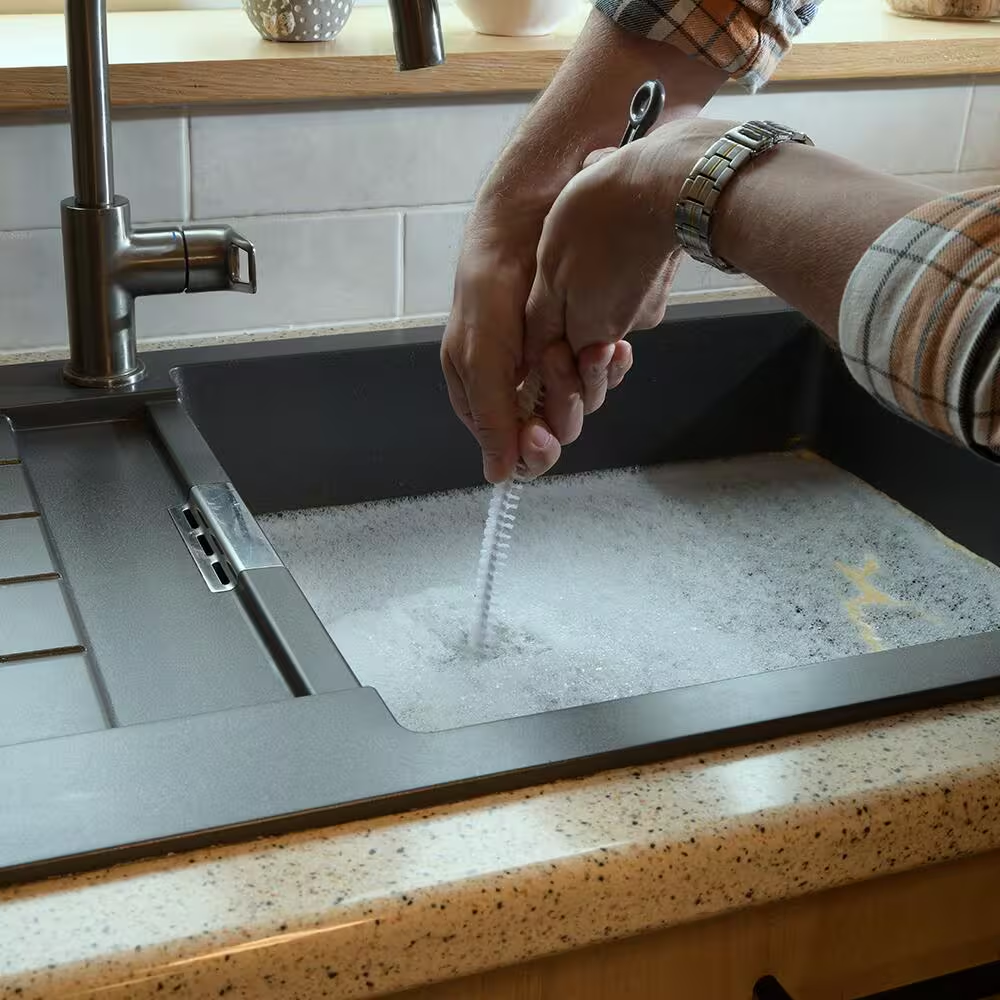A stinky sink drain can be a persistent and unpleasant problem in any household. Whether it’s emanating from your kitchen or bathroom, dealing with foul odors from the drain not only disrupts your daily routine but can also indicate underlying issues that need attention. In this article, we will explore various causes of a smelly sink drain and provide effective solutions to ensure your sink remains fresh and odor-free.
 What Causes Sink Drain Odors
What Causes Sink Drain Odors
Dealing with a stinky sink drain can be frustrating. Understanding the causes is the first step to tackling the problem.
Most often, bacteria are the culprits behind the unpleasant smells. These microorganisms thrive on food particles, grease, and other organic material that get trapped in your sink’s pipes. As bacteria break down this debris, they release foul-smelling gases.
Another common cause for sink drain odors is a buildup of gunk and grime. Over time, soaps, fats, oils, and food remnants can stick to the sides of the drainpipes. This sludge-like material then begins to decay, producing a stink.
Clogs can also lead to smelly drains. When items that should not go down the drain get lodged in the pipes, they obstruct the water flow and create a breeding ground for bacteria. The trapped materials start to rot, releasing bad odors.
Sometimes the problem lies with the plumbing system itself. A dry P-trap — the U-shaped pipe under your sink designed to hold water and prevent sewer gases from entering your home — can also be a source of odor if the water evaporates.
If your sink is rarely used, water in the P-trap can evaporate, allowing sewer gases to sneak up the pipes. This can happen in guest bathrooms or other lesser-used sinks. Preventing these issues involves regular cleaning and maintenance, which we will discuss in upcoming sections.
DIY Solutions for a Stinky Sink Drain
Combatting a stinky sink drain doesn’t always require professional help. Often, you can use common household items to tackle the problem yourself. Here are some DIY solutions that can help neutralize those nasty odors coming from your sink.
- Boiling Water: Pouring boiling water directly down the drain can dislodge greasy residues and clear out bacteria. Do this weekly as a preventative measure.
- Baking Soda and Vinegar: Sprinkle half a cup of baking soda into the drain, followed by a cup of vinegar. The mixture will fizz and break down grime. Rinse well with hot water after 15 minutes.
- Lemon and Ice for Garbage Disposals: If you have a garbage disposal, grinding ice and lemon peels in it can help clean the blades and leave a fresh scent.
- Salt and Baking Soda: Mix half a cup of salt with a cup of baking soda and pour it down the drain. After an hour, flush the drain with boiling water to clear out the buildup.
- Cleaning the P-trap: Place a bucket under the P-trap to catch any water, then unscrew the pipe to clean out any debris. This step is especially useful if the sink drain is not used often.
By frequently using these methods, you can maintain a fresh-smelling sink and prevent the return of stinky sink drain odors. Remember, regular care is the best approach to keeping your drains clean and odor-free.
 Preventative Measures to Keep Your Sink Smelling Fresh
Preventative Measures to Keep Your Sink Smelling Fresh
To prevent a stinky sink drain, it’s important to adopt a proactive approach. Here are some effective preventive steps you can take:
- Regularly Run Hot Water: Each day, let hot water flow through the sink for a minute. This helps keep oils from solidifying and odors from forming.
- Dispose of Waste Properly: Never throw food scraps, cooking oil, or grease down the drain. Use a compost bin or the trash can for disposal.
- Weekly Cleaning with Baking Soda: Sprinkle baking soda into the drain weekly, followed by hot water. Baking soda absorbs smells and keeps your sink fresh.
- Use a Drain Stopper: When not using the sink, keep a stopper over the drain. This can minimize debris and odors.
- Keep P-trap Wet: Ensure the P-trap always has water by running the faucet regularly. This stops sewage smells from coming up.
- Deodorize with Citrus Peels: Occasionally grind citrus peels in the disposal. This leaves a pleasant aroma and cuts through grease.
By integrating these practices into your routine, you can vastly reduce the likelihood of your sink drain developing stinky odors. Prevention is easier than curing, so take these steps to keep your sink smelling fresh and clean.
When to Call a Professional for Stinky Drains
Sometimes home remedies just don’t do the trick for a stinky sink drain. It’s essential to recognize when it’s time to call in a professional. Here are a few indicators:
- Persistent Odor: If the stink persists after you’ve tried multiple DIY solutions, a deeper problem may exist.
- Slow Drainage: If water drains slowly, you might have a blockage deep in your pipes that needs professional attention.
- Gurgling Sounds: Gurgling can signal a possible vent or sewer line issue, which requires a plumber’s expertise.
- Water Backup: Water coming back up the drain is a sign of a serious clog or sewer line problem.
- Sewer Smell: A strong sewer odor could indicate a broken sewer line or vent pipe, which is critical to fix.
- Frequent Clogs: If you’re frequently unclogging the sink, this might mean there’s a bigger issue at play.
- Multiple Drains Affected: When more than one drain smells or is clogged, the problem could be within the main plumbing system.
When these signs appear, don’t hesitate to seek professional help. Licensed plumbers have the tools and expertise to diagnose and solve complex drain issues that go beyond the reach of home remedies. Regular maintenance by a professional can also keep your drains clear and odor-free in the long term. Engaging a professional ensures that your stinky sink drain issues are thoroughly addressed, preventing further inconvenience or costly repairs down the line.
 Natural Ingredients to Combat Drain Odors
Natural Ingredients to Combat Drain Odors
When facing a stinky sink drain, natural ingredients can be powerful allies. Here are some to use:
- Baking Soda: Neutralizes odors naturally. Sprinkle it down the drain, then flush with hot water.
- White Vinegar: Works as a disinfectant and deodorizer. Pour it down the drain and rinse after a few minutes.
- Lemon Juice: Breaks down residue and leaves a fresh scent. Mix with hot water and pour it down.
- Essential Oils: Adds a pleasant aroma. Choose scents like lavender or peppermint, add a few drops to boiling water, and pour it down the drain.
- Borax: Cleans and combats odors. Pour 1/2 cup down the drain, let it sit, then rinse well.
These ingredients are safe, eco-friendly, and often on hand in your kitchen. They work well for routine maintenance and can help keep your sink smelling fresh.
The Importance of Regular Drain Maintenance
Consistent drain maintenance is key to avoiding stinky sink drain issues. It prevents the buildup of organic materials that can decompose and cause odors. Regular care also stops the growth of bacteria that break down waste and release foul smells. Here’s why making drain maintenance a habit is crucial:
- Stops Blockages: Regularly cleaning your drain stops debris from building up and forming clogs.
- Fights Odors: A clean drain means no lingering odors because there’s nothing to decompose and smell.
- Saves Money: By maintaining your drains, you reduce the need for professional plumbing services and costly repairs.
- Longer Drain Life: Proper care can extend the life of your plumbing by avoiding corrosion and wear.
- Healthier Home: Keeping drains clear prevents harmful bacteria from thriving in your home’s pipes.
- Better Performance: A well-maintained sink drain will work more efficiently, draining water quickly.
To practice regular drain maintenance, follow these simple steps:
- Regular Cleaning: Use natural ingredients like baking soda and vinegar to clean your drain weekly.
- Inspect P-traps: Check and clean the P-trap under your sink to stop any sewer gas leaks.
- Avoid Harsh Chemicals: Harsh chemical cleaners can damage pipes over time. Use gentle, natural alternatives instead.
- Professional Inspection: Have a plumber inspect your drains annually to catch issues early.
No more ignoring your sink drain. Take these steps and keep your home smelling fresh and clean.
 Tips for Dealing with Garbage Disposal Smells
Tips for Dealing with Garbage Disposal Smells
Garbage disposals can often be the source of stinky sink drain odors. These tips can help you eliminate and prevent unpleasant smells:
- Regular Cleaning: Run your disposal with dish soap and cold water for a minute every day.
- Ice Cubes: Grinding ice cubes in your disposal helps knock off food debris from blades.
- Citrus Peels: Grind lemon or orange peels to freshen up the scent of your kitchen.
- Vinegar Ice Cubes: Freeze vinegar in ice cube trays and grind them in your disposal for cleaning and deodorizing effects.
- Baking Soda and Vinegar: Once a week, pour half a cup of baking soda followed by a cup of vinegar down the disposal. Rinse after a few minutes.
- Avoid Certain Foods: Don’t put fibrous or starchy scraps like banana peels or potato skins in your disposal. They can cause clogs and smells.
- Freshen Up with Salt and Ice: Sprinkle some salt in the disposal, then grind up some ice. This can help to dislodge buildup.
- Clean the Splash Guard: Scrub the underside of the splash guard with a brush and soapy water. It can collect food particles that cause odors.
By applying these tips, you can tackle stinky sink drain problems related to your garbage disposal and keep your kitchen smelling clean and fresh.
Must-Have Products for Eliminating Sink Odors
Combating a stinky sink drain sometimes needs more than DIY solutions. Certain must-have products are designed to fight and eliminate sink odors quickly and effectively. Here are some top picks to keep your sink smelling fresh:
- Enzyme Drain Cleaners: These cleaners use natural enzymes to break down organic material that causes odors. They’re biodegradable and safe for pipes.
- Odor-Eliminating Beads or Gels: Such products absorb and neutralize smells. Place them near the sink to maintain a fresh environment.
- Commercial Drain Cleaners: For tougher jobs, a strong drain cleaner can help. Choose ones designed to work with your type of plumbing.
- Garbage Disposal Cleaners: These are formulated to clean and deodorize disposals and drains. Use them regularly to prevent smells.
- Drain Brushes: Long brushes can help remove gunk that’s stuck in pipes. They physically clean areas where debris collects.
- Drain Strainers: To stop food and waste from entering the drain. They reduce the chances of clogs and odors starting.
- Charcoal Filters: Fit these inside your drain to trap odor-causing particles. They use activated charcoal, known for its deodorizing properties.
By investing in these products, you strengthen your fight against stinky sink drain odors. Remember to read the labels and follow the instructions for the best results. Regular use of these products, along with the preventative measures already discussed, will keep your sink in top shape and smelling fresh.
DIY vs. Professional Solutions: Making the Right Choice
Evaluating the Severity of the Issue
Determine whether a stinky sink drain problem can be managed with DIY methods or if professional intervention is necessary:
- Mild to Moderate Odors: These can typically be addressed with natural cleaning solutions and regular maintenance.
- Severe or Persistent Odors: If odors persist despite thorough cleaning, it may indicate a more serious plumbing issue that needs professional attention.
Cost Considerations
Weigh the costs associated with DIY solutions versus hiring a professional plumber:
- DIY Methods: Generally more affordable, utilizing household items and minimal tools.
- Professional Services: While more expensive, they offer expertise and long-term solutions that can prevent recurring issues.
Time and Effort
Consider the time and effort required to resolve the issue:
- DIY Solutions: Require time for gathering materials, performing the cleaning, and monitoring results.
- Professional Help: Saves time and ensures the problem is addressed efficiently with minimal disruption to your routine.
 Conclusion
Conclusion
Dealing with a stinky sink drain requires a combination of regular maintenance, mindful disposal practices, and, when necessary, professional intervention. By understanding the common causes and implementing effective cleaning strategies, you can ensure that your sink remains free from unpleasant odors. Remember to use natural cleaning agents, maintain proper ventilation, and educate all household members on best practices. With these comprehensive tips and tricks, you can confidently tackle any stinky sink drain issues and maintain a fresh, pleasant home environment.

